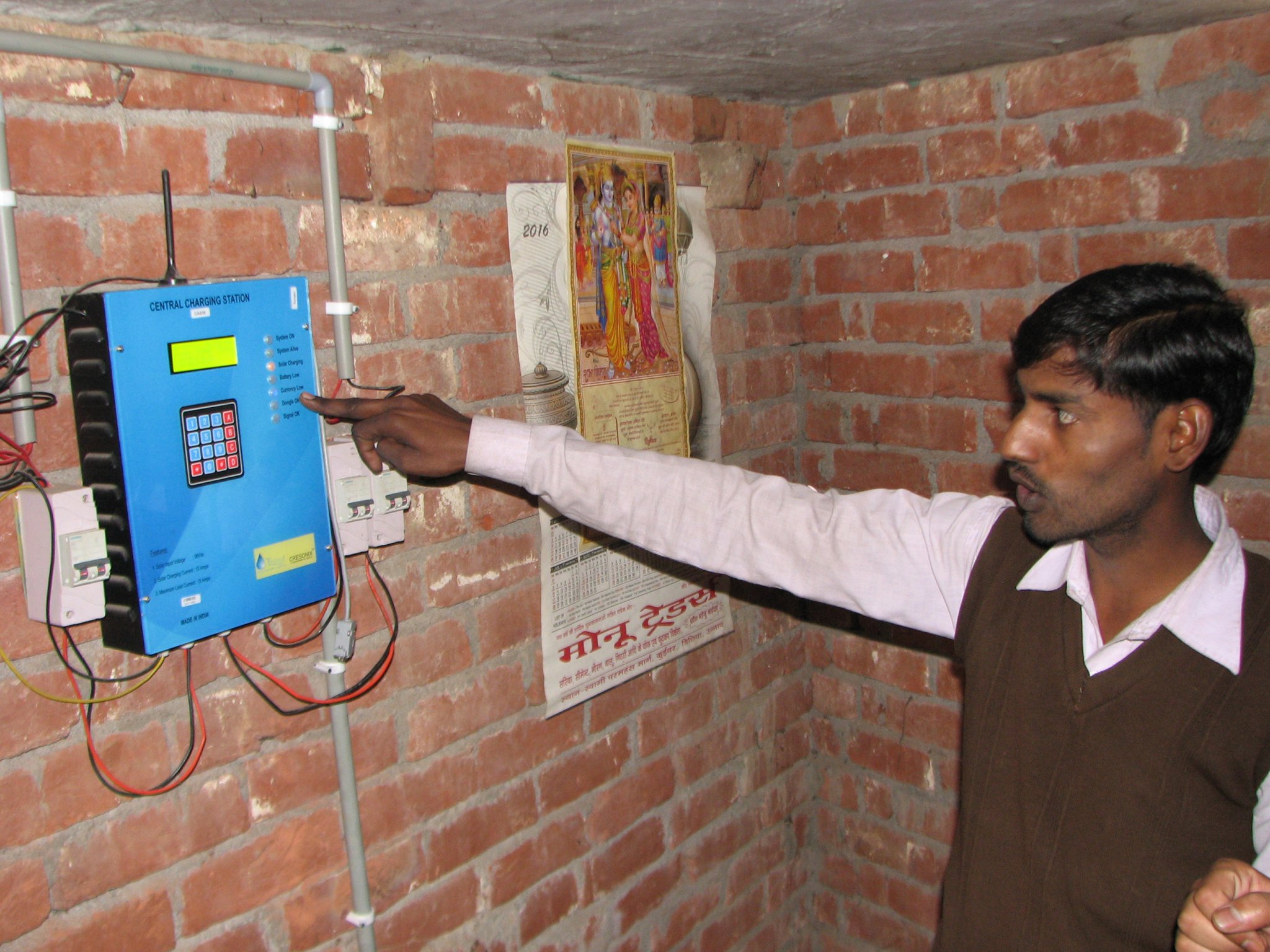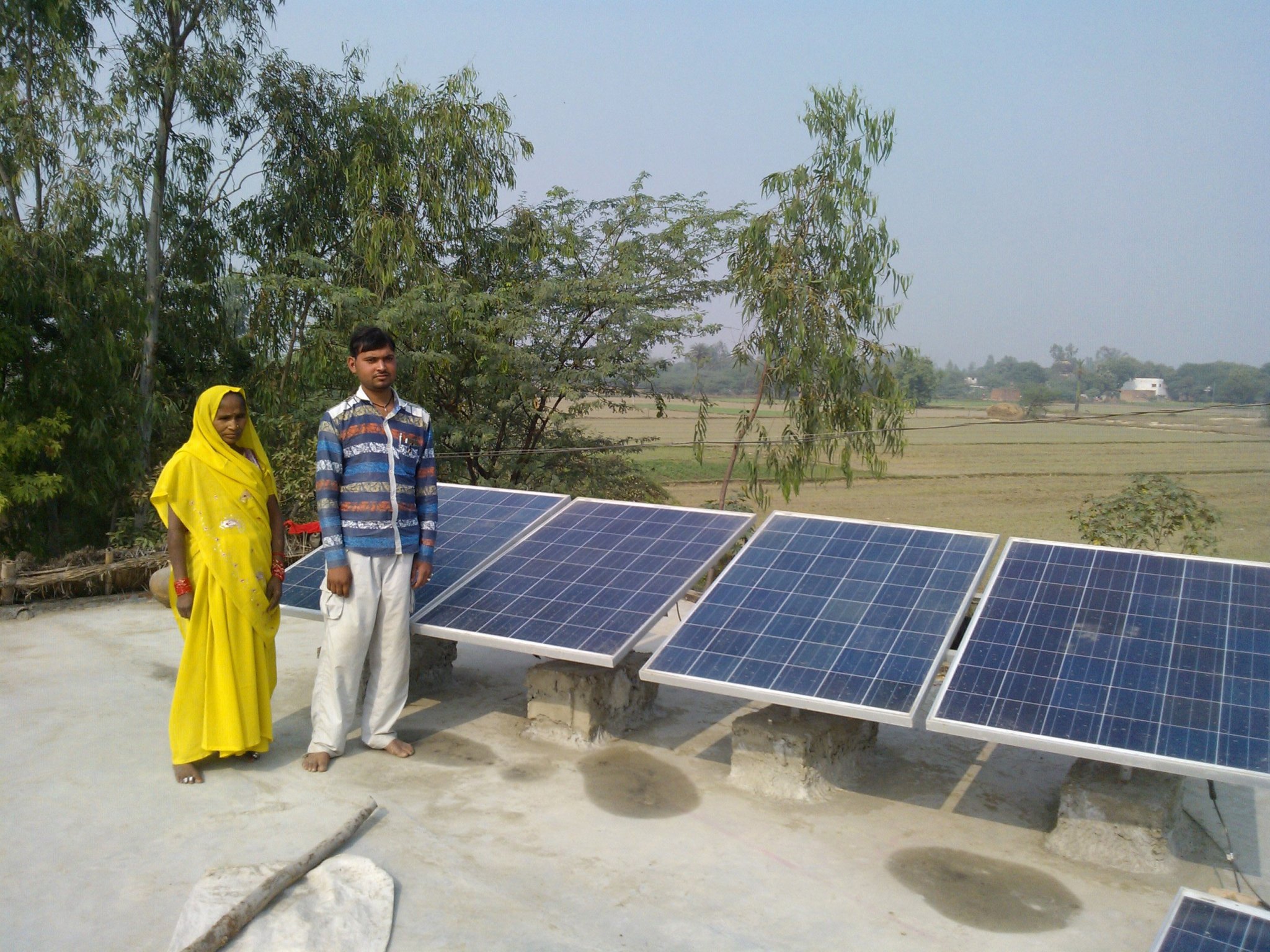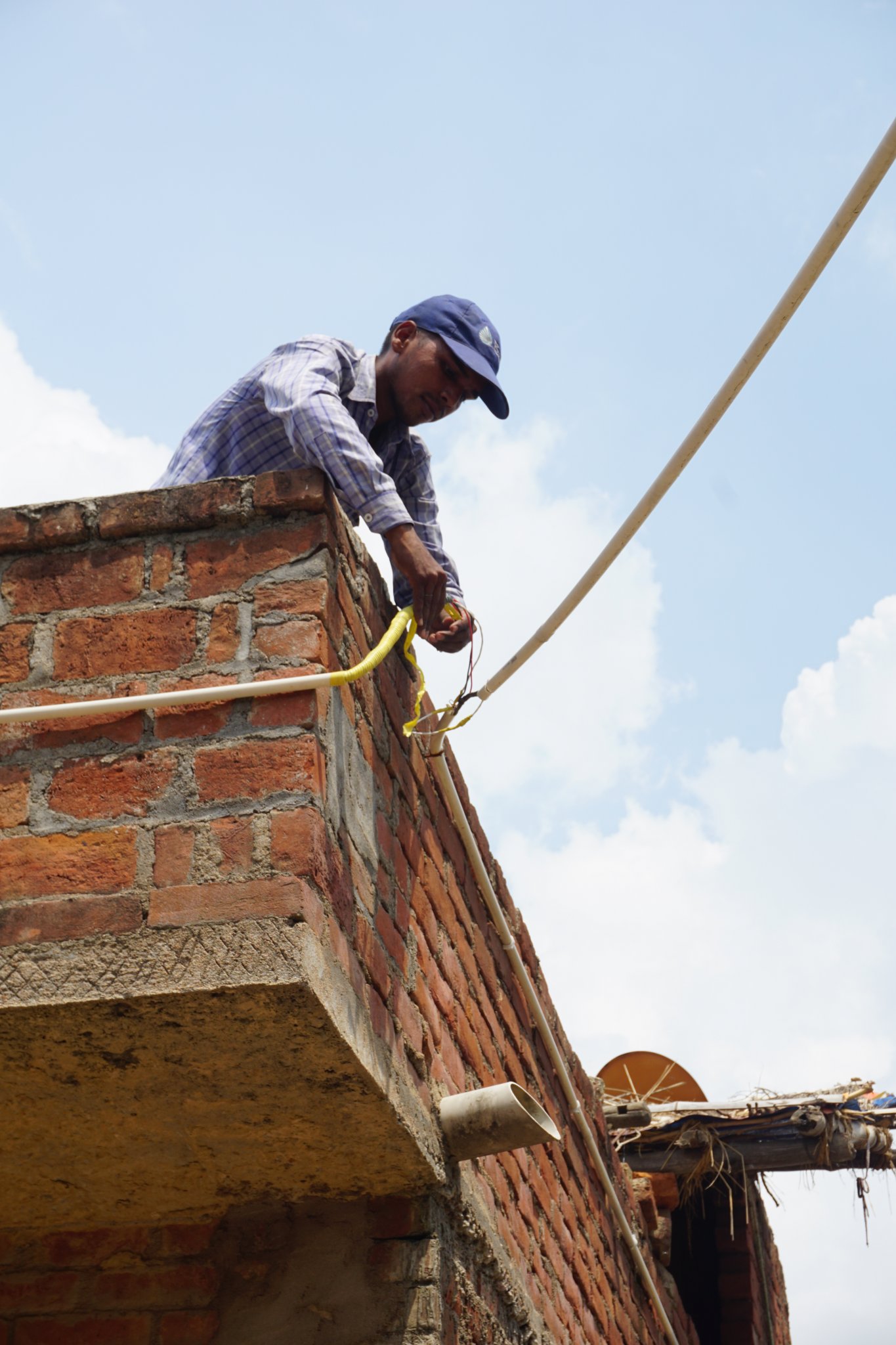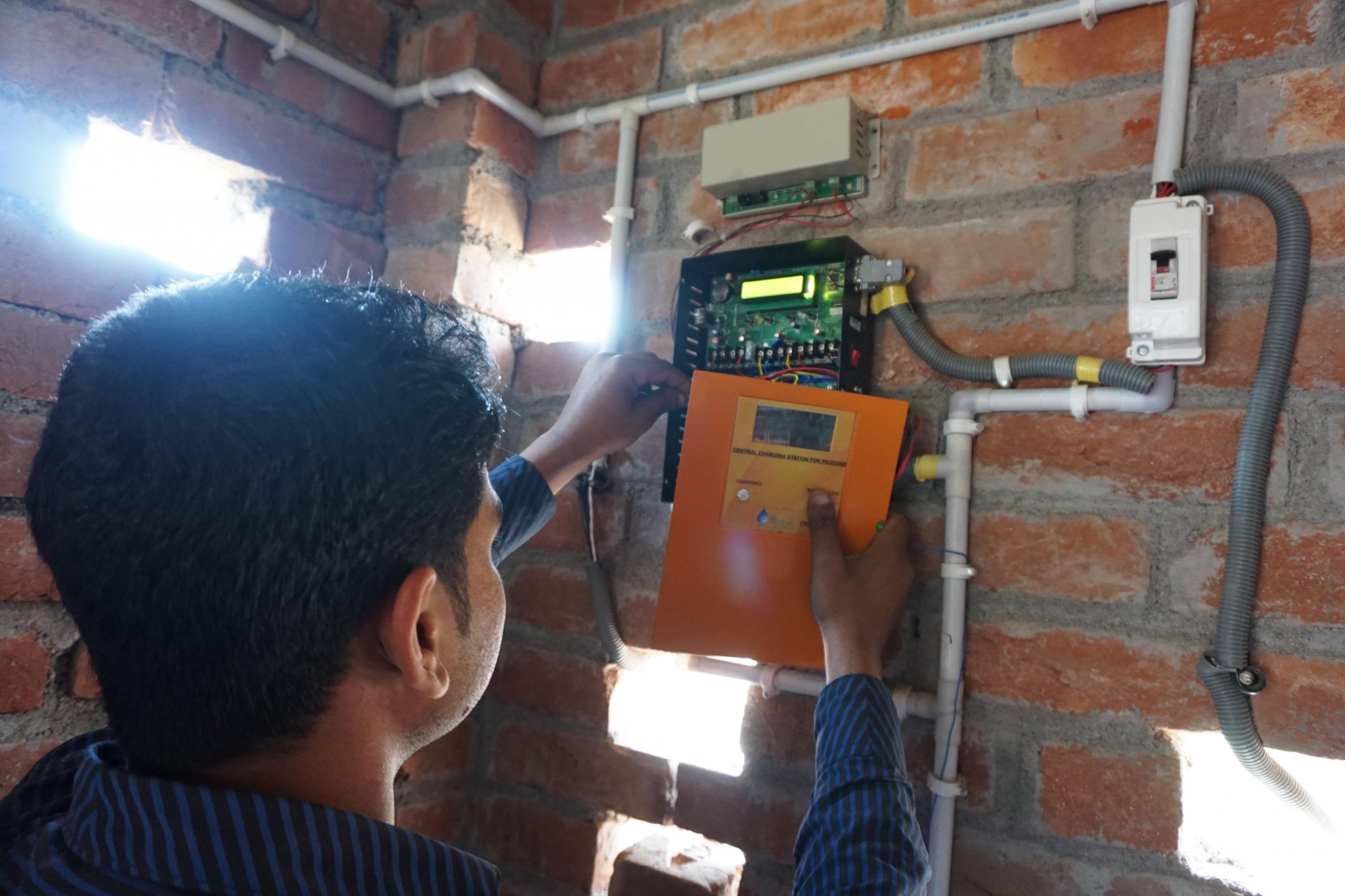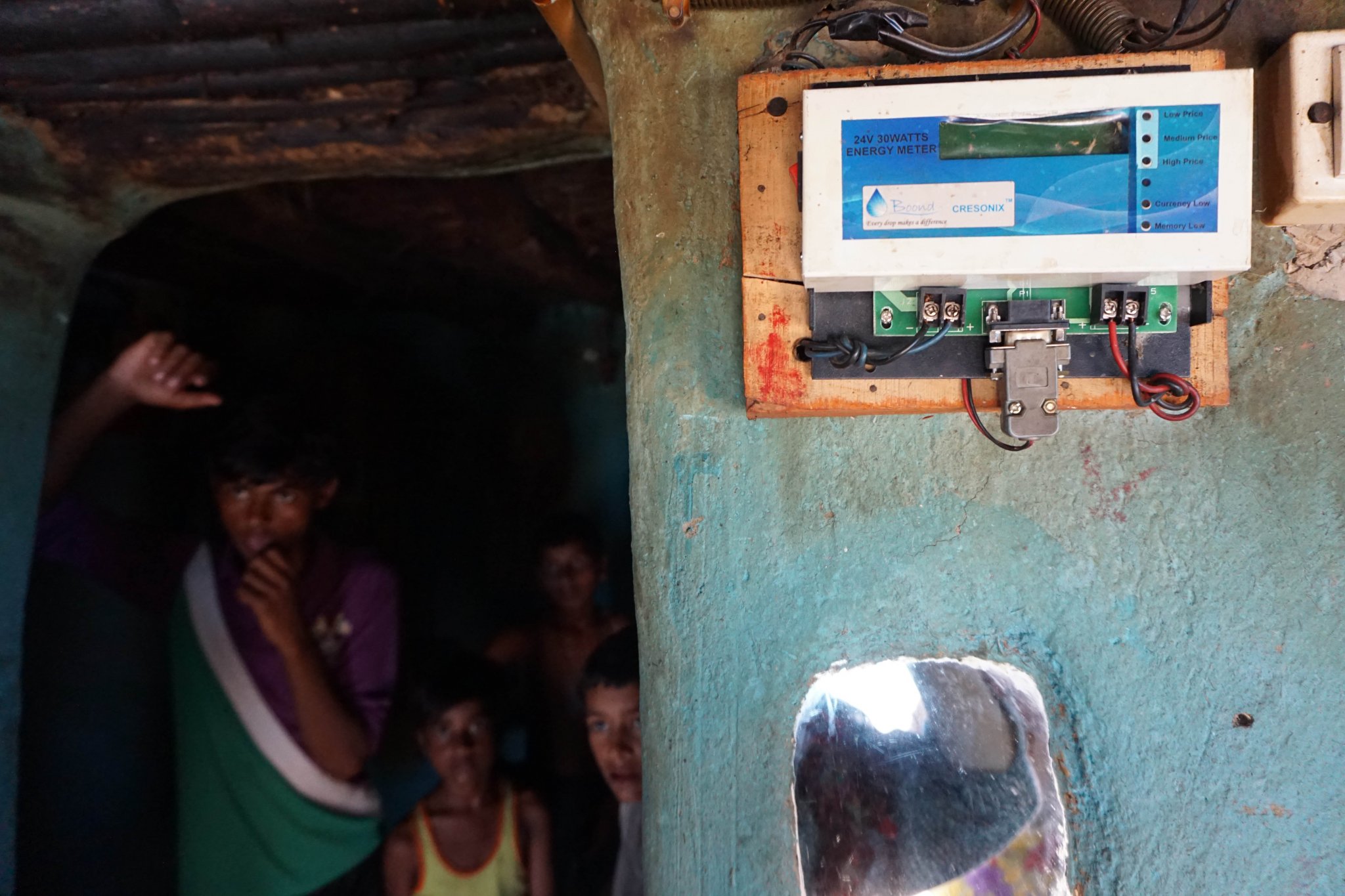Funding note
The project has been funded by the Tiina and Antti Herlin Foundation between 2016 and 2019 and Finnish Technology and Innovation Agency TEKES through New Global project of Aalto University in 2015 and 2016.
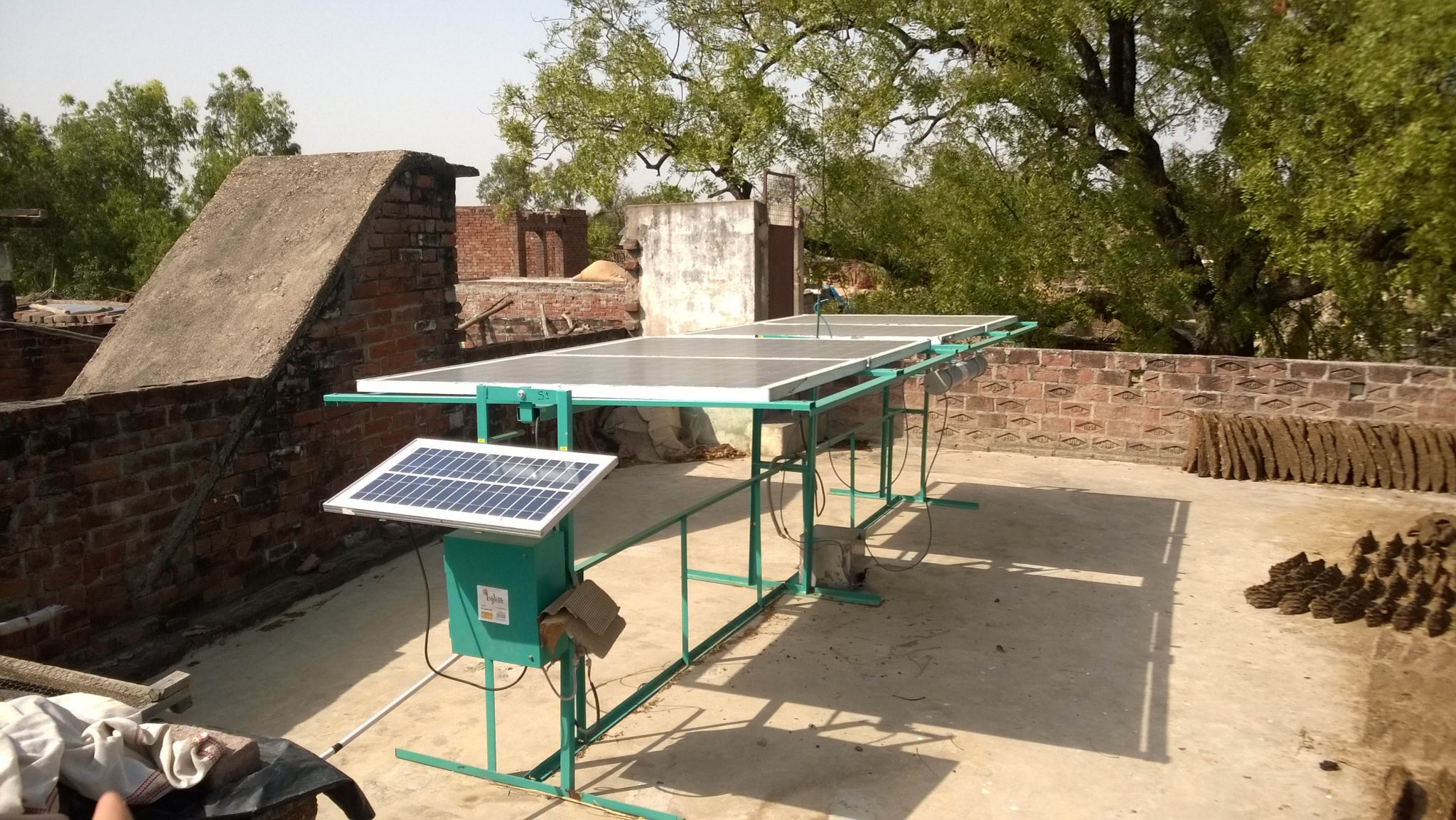
In short
The utilisation of solar energy is an important solution to several global environmental problems and could alleviate energy poverty. The use of solar energy is recommended particularly in many global southern countries, where conditions for solar energy exploitation are favorable and hundreds of millions of people live without electricity. This thesis contains an analysis of solar-powered micro-grids operated by private energy service companies in India. In particular, a frugal technology, a solar micro-grid system with locally manufactured pre-paid energy meters was investigated in rural Northern India through a set of field measurement trials.
The micro-grids included an advanced pricing method that could potentially decrease system cost, which is of the utmost importance in low-income communities. A particular focus in this dissertation is on the reliability of solar micro-grid systems. The reasons for a lack of reliability were analysed for several different systems offered by 12 energy providers in rural India. An important outcome of the dissertation is a new reliability assessment method for renewable off-grid power systems.
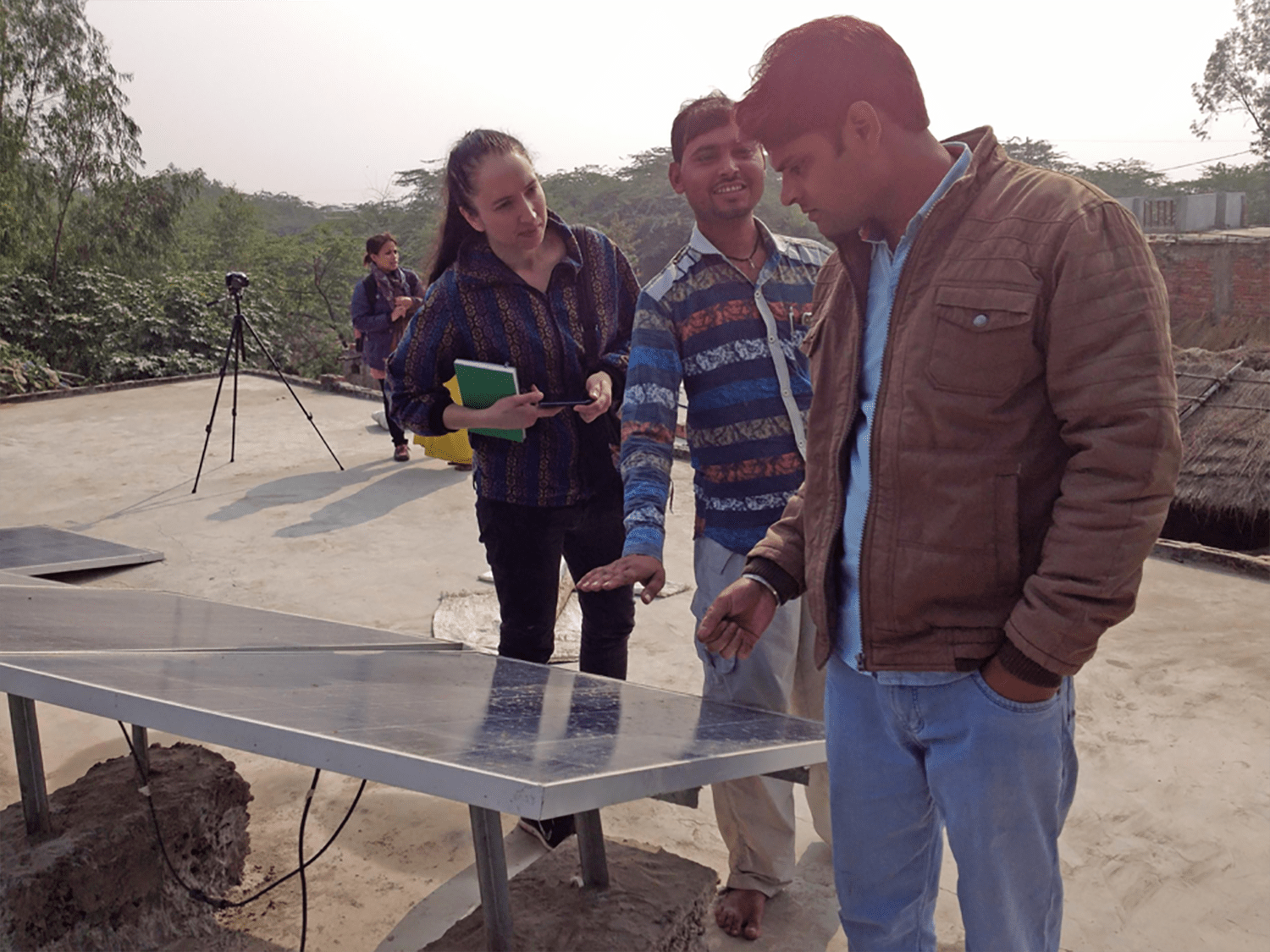
Methods, field work and key findings
A frugal technology, a solar micro-grid system with locally manufactured prepaid energy meters was investigated in rural Northern India through a set of field measurement trials. The micro-grids included an advanced pricing method that could potentially decrease system cost, which is of the utmost importance in low-income communities. However, the dynamic pricing function was not found beneficial in the field trial, because the impoverished customers minimised their power consumption, so demand response benefits could not be demonstrated. Therefore it is recommended to design technology and business models with an essential user-centered approach without overlooking the potential necessity of educating end-users in areas where people may have not had access to power grid services before. Moreover, the frugal electronic component quality requires attention.
A particular focus in this dissertation is on the reliability of solar micro-grid systems. In the field trial, power was measured to be available for the households 87% of the time. The number of days without blackouts was 200 out of 356 days measured. The reasons for a lack of reliability were related to a lack of solar energy in the winter season, component failures, and unexpected user activities such as power theft.
Research work consisted of:
- technical data analysis for measured data;
- interviews with off-grid energy practitioners (industry survey conducted in 2018), micro-grid field staff and solar energy users;
- laboratory tests for energy system components and
- literature searches in sustainability analysis, reliability engineering, development studies and solar energy engineering.
Articles
One of the most important technical features of a power system is its ability to deliver electricity reliably to the customers. Based on interviews with 12 energy service companies (ESCO) currently operating solar micro-grids in northern rural India, this study identified important factors related to technical design, customer behaviour and operations and management (O&M) that may result in contingencies in service. In addition, the study presents companies’ innovative solutions to overcome these problems.
Initially, the interview method allowed only a rough qualitative comparison of different reliability levels as the availability of comparable data was limited. We found that a more descriptive method for reliability assessment would create equally valuable information on renewable off-grid energy projects. We propose a simple framework for assessing reliability that highlights the particular features of off-grid areas in developing countries.
Solar micro-grids are receiving increasing interest in the electrification in emerging economies. On-site performance studies of these systems have become more important as the global market is being supplied with an ever-greater variety of solar power equipment with inconsistent quality. We studied the reliability of seven small identical low-power DC solar grids installed in real settings in villages in rural northern India.
A detailed analysis of measurement data, interviews and field visits over a whole year showed that solar electricity was available to the households for 87% of the time. Along with technical problems, a share of the power shortages was an indirect cause of an illegal behaviour of users. The study draws attention to quality recommendations for energy access for consumers with modest energy needs.
Stand-alone photovoltaic systems provide a potentially sustainable option for rural electrification, but the design and management of these systems is a challenge. Here we examine the ability of dynamic (real-time) pricing in off-grid systems to improve the durability of the batteries used to store power. In a randomised controlled trial with a pre-paid solar micro-grid in rural India, we found that dynamic pricing did not improve technical performance or customer satisfaction.
The best explanation for the null finding is that, for various reasons, households minimised their power consumption and there was thus little need for demand management. These findings suggest that the low demand for power is a key challenge for the profitability of pre-paid off-grid systems.
Frugal innovations have recently emerged to feature low-cost technologies and business innovations to serve consumers in emerging markets and improve their quality of life. Although the concept of frugality is well known, the present literature on frugal energy innovations, or energy frugality, is scarce, which could lead to overlooking its true characteristics.
Therefore, we propose a framework for defining energy frugality based on a detailed analysis of several low-cost sustainable energy technologies.
Frugal innovations are often associated with sustainable development. These connections, however, are based on anecdotal assumptions rather than empirical evidence. This article evaluates sustainability of four frugal innovations from water and energy sectors.
For the purposes of the evaluation a set of indicators was developed. Indicators are drawn from sustainable development goals by the United Nations and they encompass central dimensions of sustainability: ecological, social and economic.
Contribution
The dissertation contains several interesting results, highlighted in the research articles.
One outcome that could be presented here is the new reliability assessment method for renewable off-grid power systems, based on an interview study with solar micro-grid operators in India. The use of the framework may encourage reliability thinking and assist in designing more reliable power systems.
Namely, there is currently a global solar energy boom; photovoltaic energy projects are being launched at an increasing speed in developing countries, which is no wonder, as there is a huge shortage of sustainable energy in these countries. Energy projects are funded by a diverse and international group of investors and donors, companies and NGOs. However, in practice, the reliability of the power service offered by these systems may not always be satisfactory. Sometimes the lifetime of these projects is short and many technical problems cast a shadow on their reputation of a sustainable alternative for fossil-fuel based sources.
As a solution to this problem, the new reliability assessment tool provided in this thesis for renewable energy projects. The tool would allow all involved parties, including supporters, system developers and local project management to discuss the various aspects of reliability associated with photovoltaic projects, both in technology and in the use of technology.
The use of the tool could reinforce the focus on the importance of maintenance and all other aspects that result in a maximum service reliability. The technically sustainable system delivers the service, and only a functional system can produce other sustainability benefits (social, economic, environmental).
The developed reliability assessment tool is tailored to the context of developing countries, taking into account, for example, difficulties in accessing after-sales service, which is typical in remote areas. The method is descriptive, which has the advantage of better highlighting localised problems, such as long maintenance outages in remote regions or a lack of sufficient protective measures of some critical system units.
In the next phase, it would be important to assess the usability of the tool in different low-income contexts, for example in collaboration with some key development funders such as national foreign ministries or international multilateral organisations, who would like to test the global sustainability of the energy projects they are supporting. I would be very interested in continuing the development work of this idea. Please kindly approach me if in any questions or queries.
